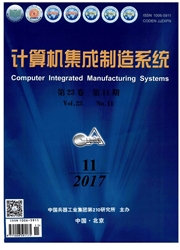

 中文摘要:
中文摘要:
以往研究准时制往往集中在单个零部件供应商和主生产商的准时制策略上。而在现实的准时制运作中,存在多个零部件供应商以物料清单为基础向主生产商提供零部件,其中任何一个零部件供应商的延迟供货都会影响主生产商的服务水平。基于物料清单表建立多个零部件供应商和主生产商的关系,并对主生产商如何在准时制策略下使用惩罚机制或激励机制来达到期望的服务水平进行了探讨,发现不同的机制能达到不同的服务水平。
 英文摘要:
英文摘要:
Study on Just-in-Time(JIT)used to focus on JIT strategy of single component provider and main manufacturer. However, several component providers supplied components for main manufacturer based on Bill of Material (BOM) in actual JIT operations, any delay in delivery from any component provider would affect service level of manufacturers. Relationship between multi-supplier and the manufacturer based on BOM was established, and how to get expected service level by penalty policy and incentive policy for main manufacturer was discussed. Results indicated that different policies could lead to different service levels.
 同期刊论文项目
同期刊论文项目
 同项目期刊论文
同项目期刊论文
 期刊信息
期刊信息
